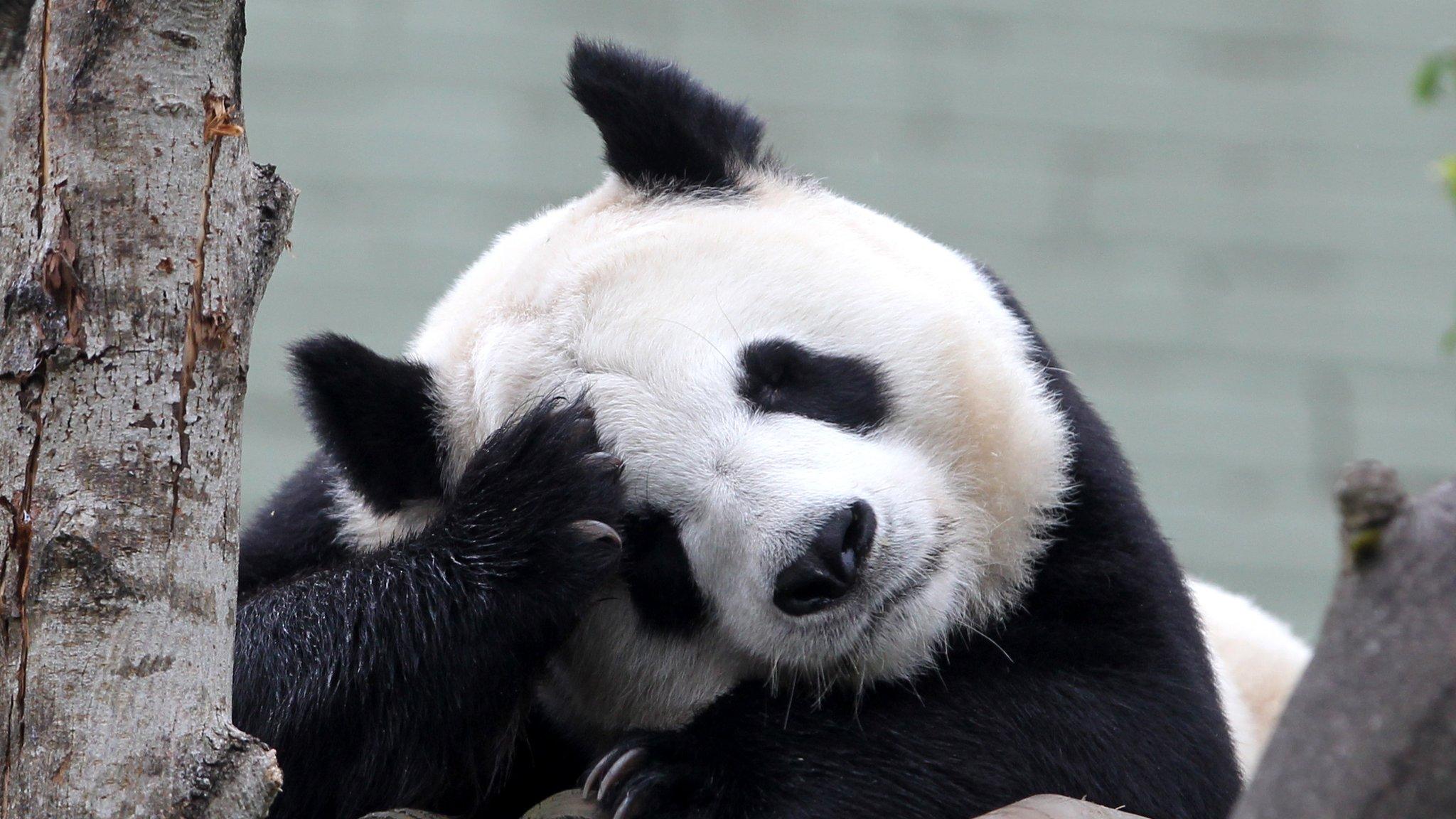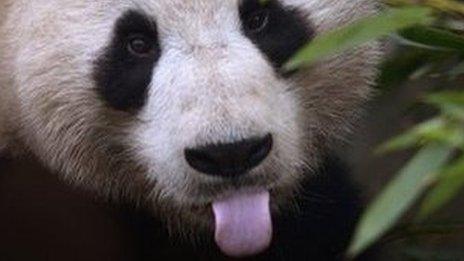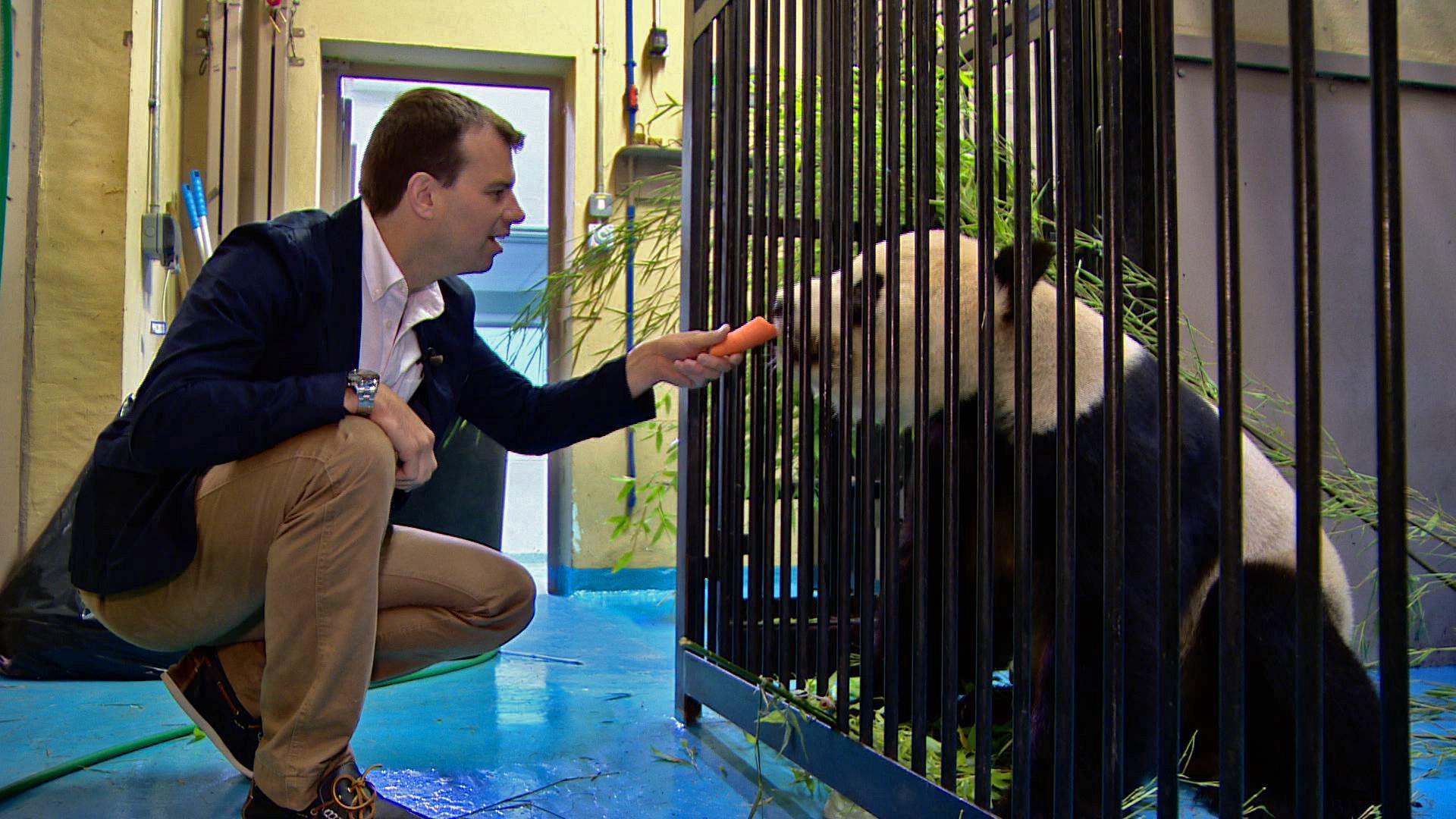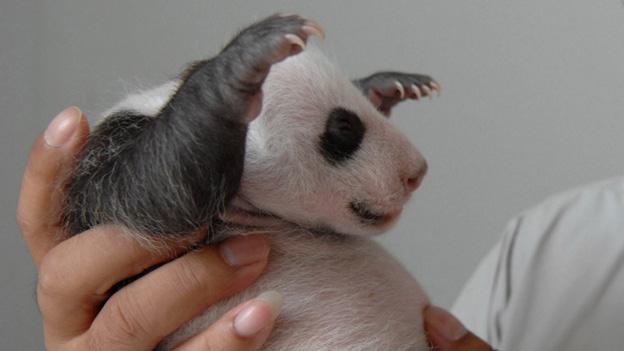Glasgow University team aims to help develop 'formula milk' for pandas
- Published

Artificial milk could help sustain panda cubs born in captive breeding programmes
Scientists at the University of Glasgow are aiming to help develop artificial milk for pandas.
If successful, it is thought that the move could be an important advance in captive breeding programmes.
When two cubs are born to a panda, one will be rejected - and so needs human intervention to survive.
The lead scientist on the project said a milk substitute for pandas was a long way off, but that the research would move things "in the right direction".
Even when a single cub is born in captivity, it can be rejected or accidentally killed by its mother.
Panda cubs are dependent on their mother's first milk, or colostrum, to protect them from infectious diseases.
The hand-rearing of pandas in captivity currently involves swapping twins when the mother is distracted, or using cows' milk which has been modified for infant dogs.
'Helpless cubs'
The work being carried out at Glasgow University will be outlined at a Giant Panda Research Symposium at Edinburgh Zoo on 10 to 12 September.
Experts at the zoo believe their female panda, Tian Tian, may be pregnant.
Prof Malcolm Kennedy of Glasgow University said: "My interest here is in the biology of lactation in bears. Bears give birth to tiny, helpless cubs that are unusually small relative to their mothers. In the case of pandas the weight ratio can be 1:1,000 or even lower.
"It could be that panda milk is specially adapted to rear such under-developed young. Indeed, we have found that panda milk takes much longer to convert from colostrum to regular milk than in cows, for example."
The scientists are using state-of-the-art instruments to identify and characterise the proteins and other molecules that make up panda colostrum and the later, mature milk.
Understanding how the composition of panda milk differs from dairy and human milk may assist in the development of a modified formula that can better support baby pandas.
Prof Kennedy added: "The research will help us to understand lactation biology in different types of mammal, bears in particular.
"We are still a long way from designing a milk substitute for panda cubs, but the kind of data we are generating will get us in the right direction."
- Published26 August 2013

- Published12 August 2014

- Published9 August 2013

- Published21 April 2013
